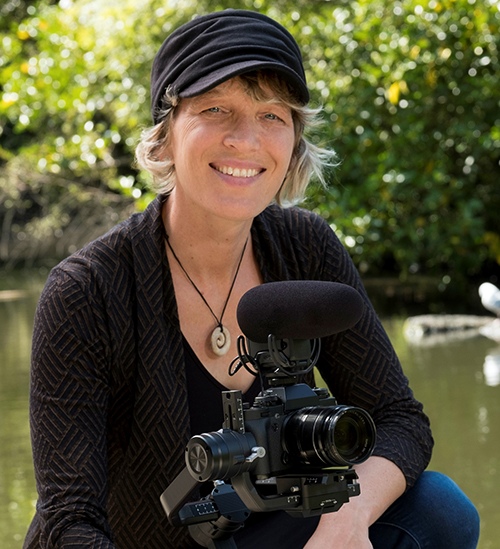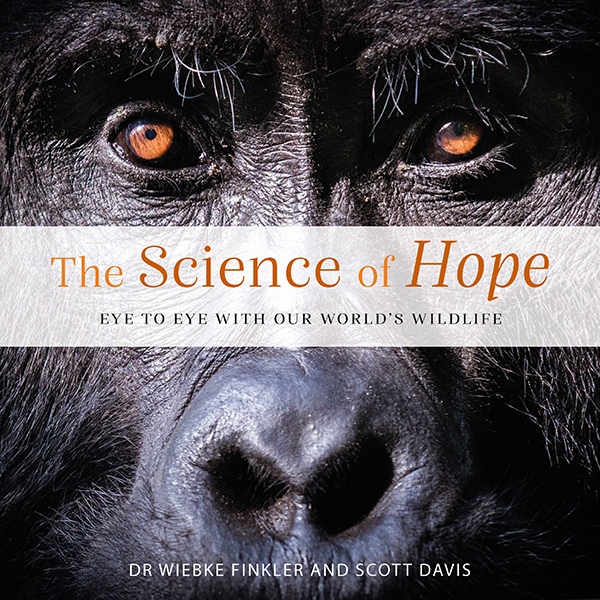
“The Science of Hope” – A Roadmap for Sustainability and Conservation Tourism
Recently I had the chance to preview a fantastic new book titled “The Science of Hope” written by Dr. Wiebke Finkler and photographed by Scott Davis whom I have interviewed previously on www.ournarratives.net. (The book will be available on Amazon in September 2021. You can preorder it from this link: https://exislepublishing.com/product/the-science-of-hope/.)

When I first started reading “The Science of Hope”, I was immediately impressed by its beautiful illustrations and rich content. The book aims to address the importance of responsible tourism and loss of biodiversity by focusing on 15 wildlife animals which have attracted people’s interest due to their “cute” appeal. These animals might stoke people’s love for nature and some become flagship species for conservation initiatives and wildlife tourism. The latter can also result in negative impacts on wildlife due to their charismatic appearances and human desire to ‘get close and personal’ with charismatic and often endangered wildlife. To demonstrate her observations, Dr. Finkler included stories of scientists, NGOs, educators and community initiatives around the world who have dedicated themselves to protecting these wild animals. For each case, readers learn about these animals in detail and the threats they are currently facing.
What most impresses me about this book is that it does not just point out problems but also provides workable solutions. It connects a spectrum of field professionals across disciplines so their messages are direct, stories are empirical, and suggestions are practical. Not to mention the amazing photos taken by Scott for each animal, making this book even more compelling for people to take action and make a difference.
I was so inspired by this book that I got hold of Dr. Finkler to learn more about her and the reasons why she wrote this meaningful book.
Dr. Finkler has a background in Marine biology and documentary filmmaking with a long interest in sustainable whale-watching (http://www.wiebkefinkler.com/, www.goodwhalewatching.com). She completed her Ph.D on the science communication of whale watching including responsible tourism marketing and community-based social marketing perspectives. Filmmaking, especially documentary filmmaking, has opened a whole new world for her because it combines diverse interests to create visual stories that can positively influence the public. For example, her film “The Guardian of Kinabalu” documents rangers who work at Kinabalu Park (Malaysia’s first UNESCO World Heritage Site) won the Special Jury Award at the 11th International Kuala Lumpur Eco Film Fest 2018.
Although “The Science of Hope” was conceived in 2018 its origins can be traced back to Dr. Finkler’s childhood. She grew up in a natural environment; immersed in the forests of a small rural village in Germany, observing local wildlife every day was like watching a movie about nature in her backyard. This was how she developed her love for nature and devoted her career to protecting wildlife. Later she met Scott Davis, the internationally-famed photographer with a special gift of using his camera to communicate with people on a boat expedition to Antarctica. “The Science of Hope” was a labor of love for both of them, illustrated with many of Scott’s photos captured travelling the globe as an expedition leader.
Dr. Finkler believes conservation is first and foremost about people because conservation should start from the local level. In her book, she interviewed experts working in the field so they could share their first-hand experiences. She thinks working with local governments and policymakers is essential because it is the most effective way to bring about change; community-based social marketing empowers people and communities to make an impact and induce positive change. While science researchers make for great mentors by providing strategies and techniques it is the local communities that need to be empowered to take ownership to effectuate meaningful change. This is why the book also features experts from around the world who work with local communities and lend their suggestions in an effective way.
Dr. Finkler does not want her book to send out doom-and-gloom messages which are all too common in our current media environment. Instead, her book is about celebrating nature because she believes its beauty is power and can bring people together. Therefore she hopes the book can foster the reader’s personal agency to take action with strategies and avenues of becoming part of positive change.
Her book also stresses the importance of sustainability and finding workable solutions as perfect scientific solutions are not adequate if they cannot be sustained by key stakeholders involved, often including business. To this end, Dr. Finkler interviewed field experts that demonstrate sustainability in their own work. For example, Katherina Audley, who works at the Whales of Guerrero, has been “cultivating local leadership through citizen science with Humpback Whales” for many years. The Reteti Elephant Sanctuary, located in northern Kenya, is another encouraging case of community-based conservation initiatives. Being the first community-owned elephant orphanage in Africa, it has united and cared for orphan elephants and set a perfect example as to how wildlife and local communities can co-exist.
Dr. Finkler, a community-based social marketing researcher, and science communicator teaches at the University of Otago in New Zealand how to use creative science marketing for positive behaviour change. She thinks now is the perfect time for younger generations to embrace the change in filmmaking. The development of new technology, for video campaigns, experiential 360 video and educational virtual reality tools, opens up venues that filmmakers can utilize to broaden their reach.
Human beings do not have to be the most dangerous animals on earth; they can also do good for the earth. “The Science of Hope” provides a roadmap as to what we, the dominant species on the planet, can do to protect wildlife and reverse the loss of biodiversity; we have the means and the knowledge, therefore, we have the responsibility to take action.